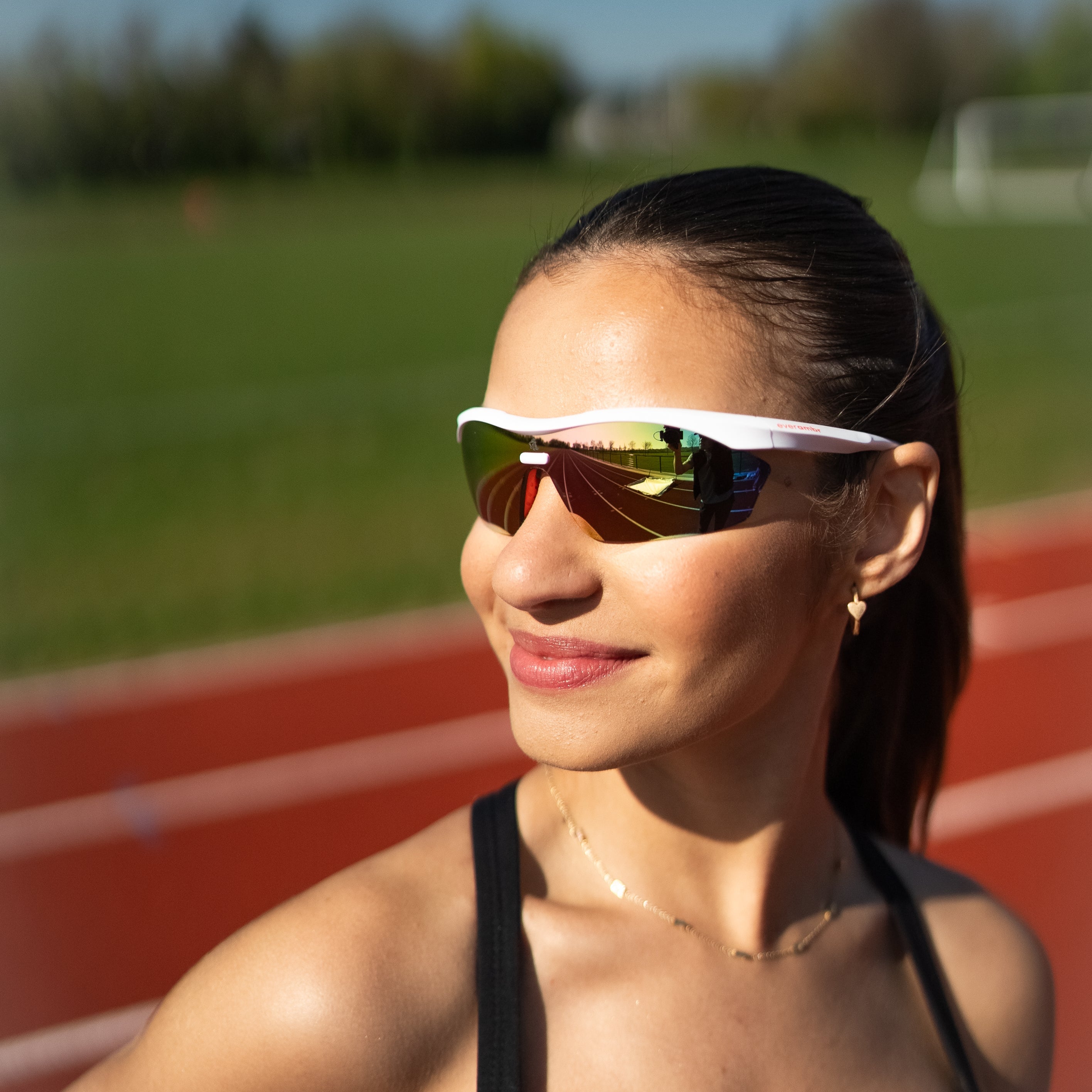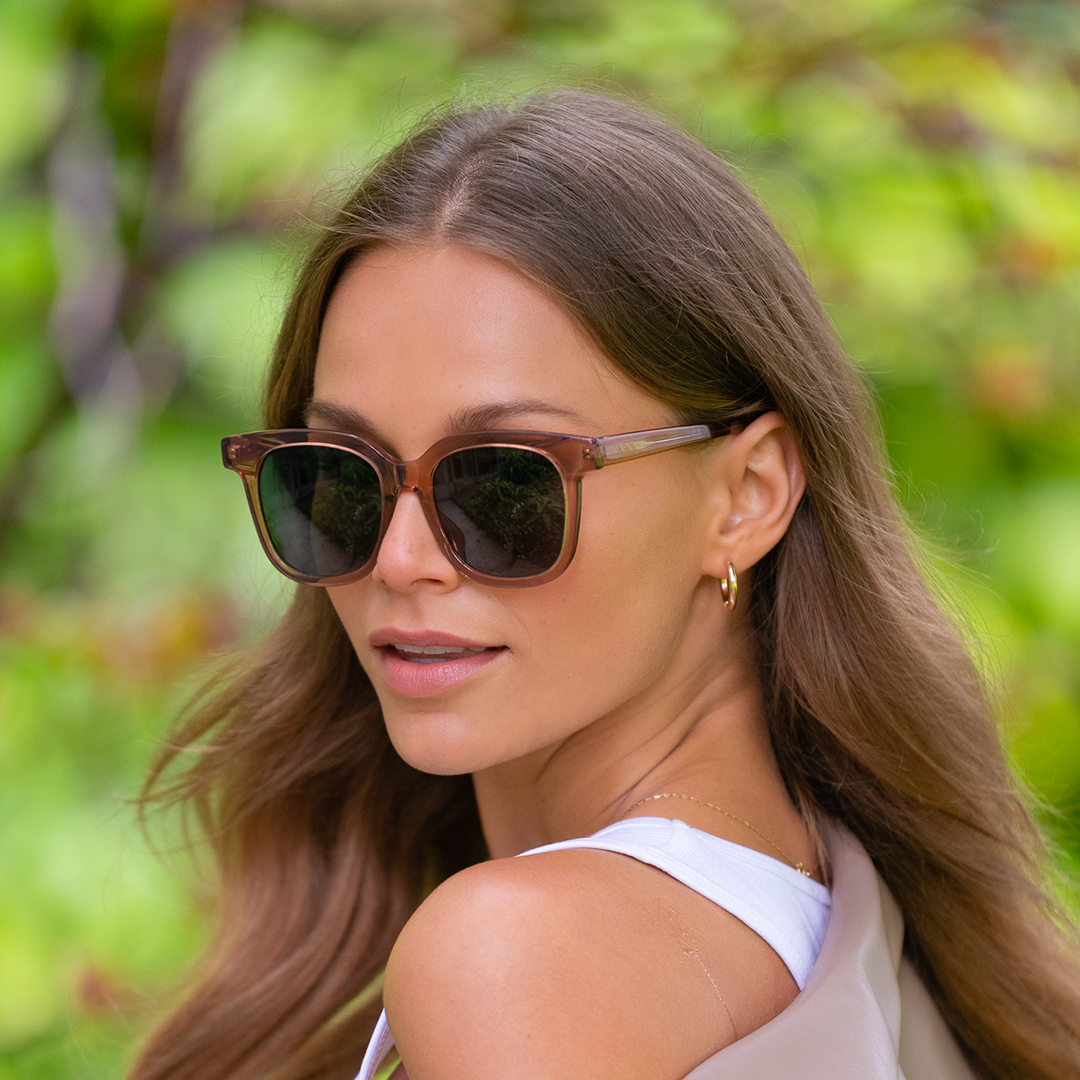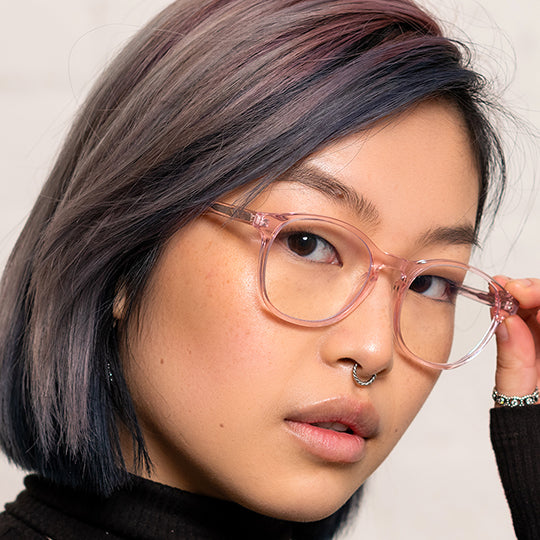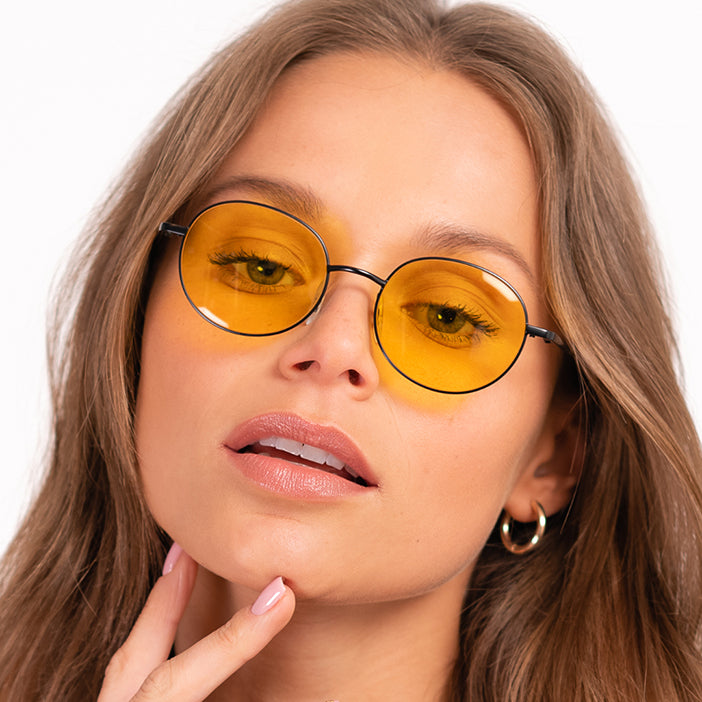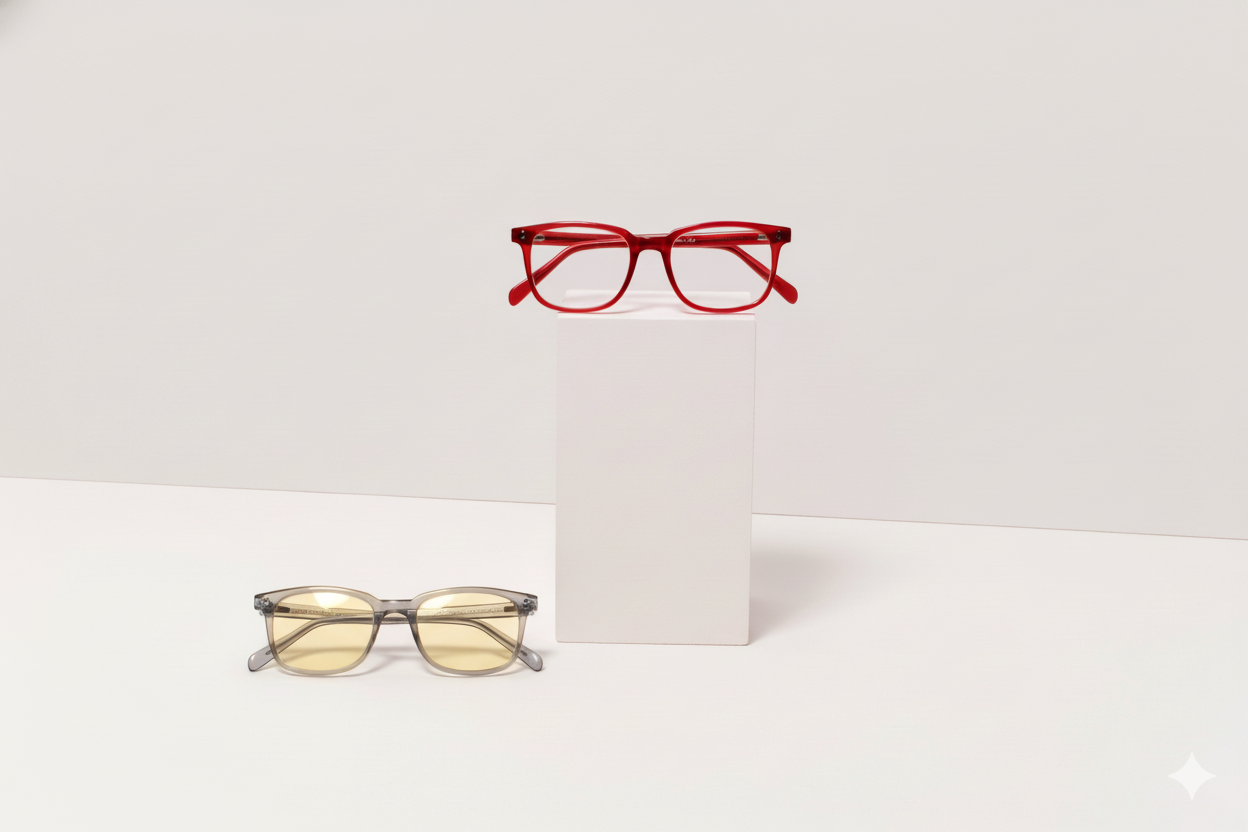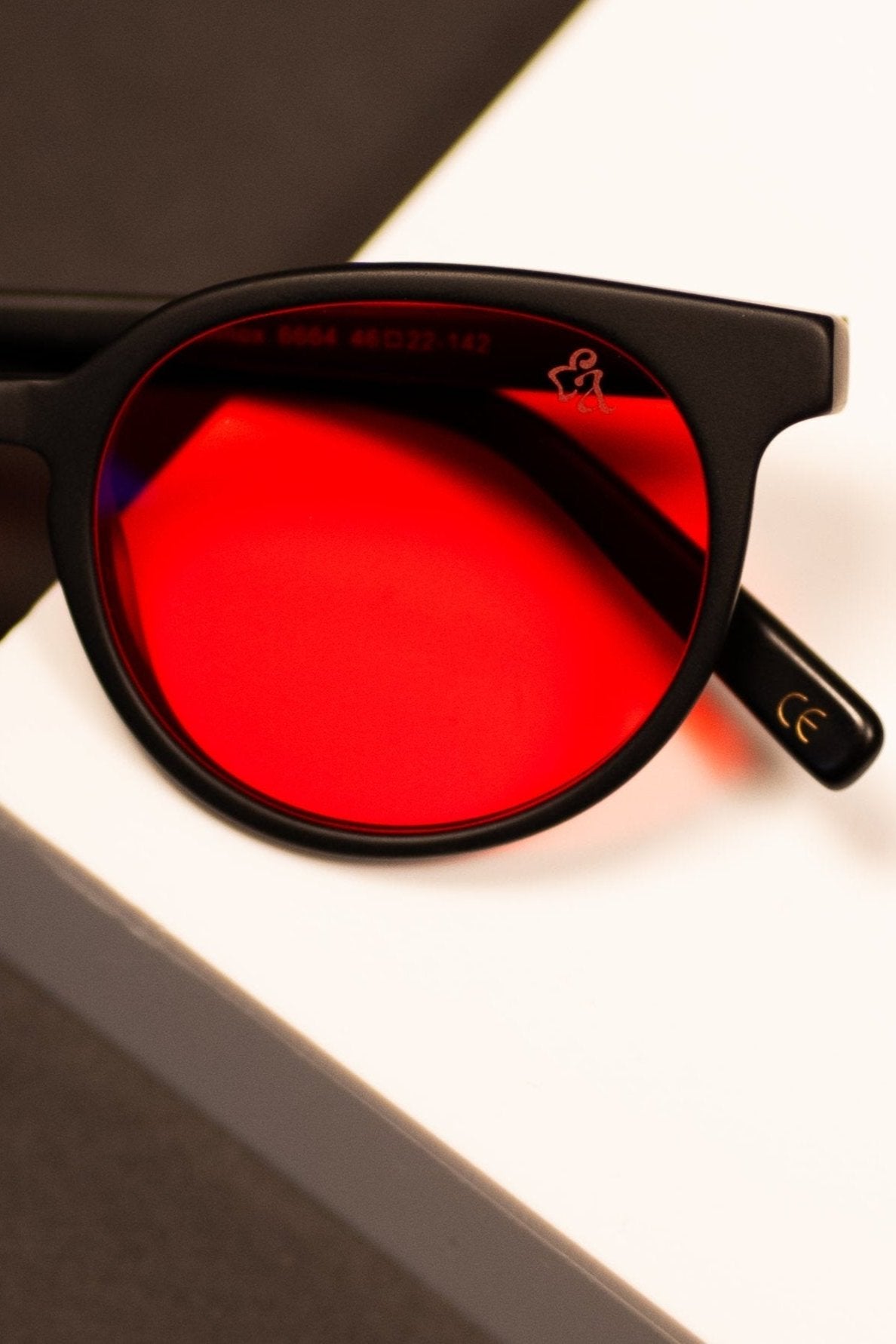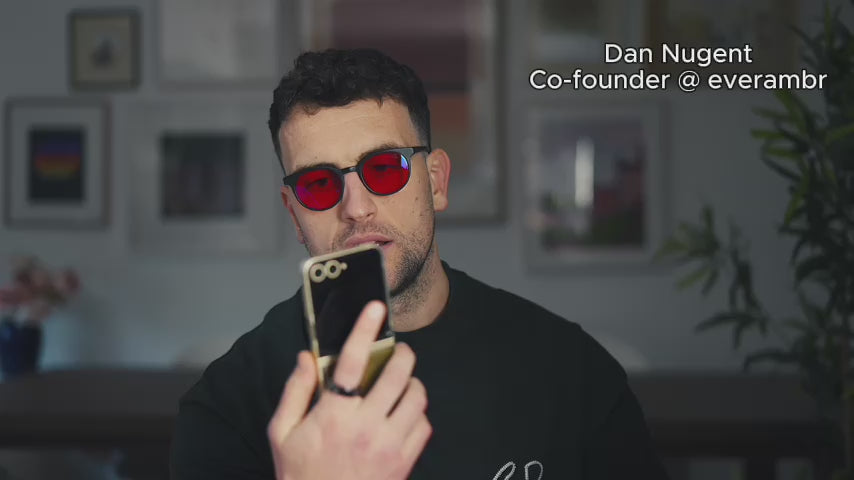
Filters
5 products
1 color available
1 color available
1 color available
1 color available
1 color available
FAQ
Learn more about our Sleep range
What do these glasses do?
These red-lensed glasses are designed to block blue and green wavelengths of light, which can disrupt your circadian rhythm and suppress melatonin production—the hormone responsible for sleep regulation. By filtering out these wavelengths, the glasses help promote natural melatonin release, improving sleep quality and supporting a healthy sleep-wake cycle when worn in the evening.
What range of light do they block?
These glasses block light in the blue spectrum (around 400-500 nanometers) and green light (roughly 500-570 nanometers). This range is known to have the most impact on melatonin suppression and sleep disruption. Red lenses are particularly effective because they can block a wider range of these wavelengths.
Can you name some studies that show these are effective?
Yes, several scientific studies demonstrate the effectiveness of blue and green light-blocking glasses in improving sleep quality by enhancing melatonin production and supporting the body’s circadian rhythm.
- Study 1: Blue Light Blocking and Melatonin Production
A 2018 study published in the Journal of Psychiatric Research tested the effects of blue-light-blocking glasses on individuals with sleep complaints. Participants who wore the glasses for 2 hours before bed showed a significant increase in melatonin levels, leading to improvements in sleep quality and overall sleep duration. This study demonstrated that blocking blue light in the evening could help those with insomnia or sleep disturbances. - Study 2: Effects of Light Blocking in Shift Workers
A 2009 study published in Chronobiology International explored the effects of wearing blue-green light-blocking glasses in shift workers. The study found that workers who wore amber-lensed glasses during night shifts had improved sleep patterns, as the glasses helped prevent the melatonin suppression caused by artificial lighting. The participants reported better sleep efficiency and more restful sleep during the day, when they were typically exposed to abnormal light cycles. - Study 3: Blocking Green Light Improves Sleep
In a 2016 study published in the Journal of Clinical Sleep Medicine, researchers examined the impact of blue and green light blocking on patients with sleep-onset insomnia. Participants who wore lenses that blocked blue and green wavelengths for three hours before bed experienced significant improvements in sleep onset latency (how quickly they fell asleep) and overall sleep quality. This study underscored the role of both blue and green light in disrupting melatonin production.
These studies provide strong evidence that blocking blue and green light before bedtime can improve sleep by reducing the disruption of melatonin production, which is essential for regulating sleep-wake cycles.
When should I wear these sleep glasses?
You should wear these glasses in the evening, approximately 2-3 hours before bedtime. This is when exposure to artificial light, including from screens and overhead lighting, can disrupt melatonin production. Wearing them during this period helps your body prepare for sleep.
What should I expect after wearing these?
After consistent use, you may notice improved sleep quality, including falling asleep faster, fewer nighttime awakenings, and feeling more rested in the morning. Some users report a calming effect due to reduced exposure to stimulating light.
Are there any negatives to wearing these glasses?
One potential downside is that red lenses can distort colour perception, particularly by making blues and greens appear very dark or even blacked out. While this may not be an issue in the evening, it can be inconvenient for tasks requiring accurate color recognition. There are no known long-term health risks associated with wearing these glasses.
Can I wear them during the day?
While you can wear them during the day, it’s not recommended for extended periods as blue light exposure is beneficial for regulating alertness, mood, and cognitive function during daylight hours. Blocking too much blue light during the day may interfere with these natural processes and could make you feel lethargic or sleepy. These glasses are best used in the evening or before bedtime.

